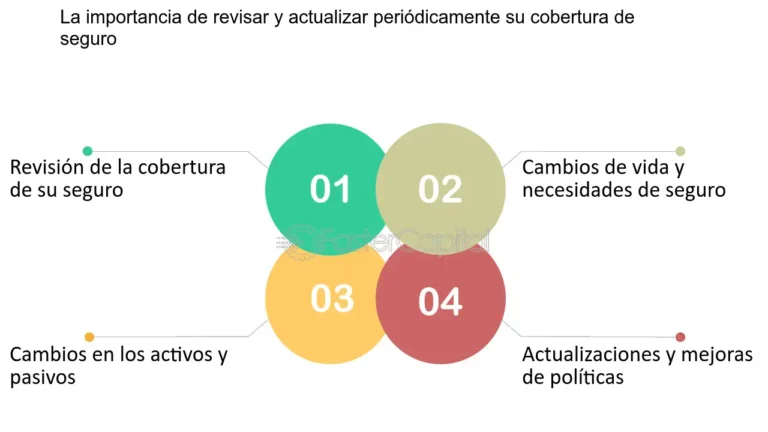Does Hugo Insurance Offer Full Coverage? Find Out Here
✅Yes, Hugo Insurance offers comprehensive full coverage, including liability, collision, and more. Discover how they can protect you today!
Yes, Hugo Insurance does offer full coverage options for its clients. Full coverage typically includes a combination of liability, collision, and comprehensive insurance, offering extensive protection for various types of incidents that may occur.
In today’s article, we will delve into the specifics of full coverage provided by Hugo Insurance, detailing what it includes, its benefits, and considerations one should keep in mind when opting for it. Understanding these elements can help you make an informed decision about your insurance needs.
What Does Full Coverage Include?
Full coverage insurance from Hugo Insurance generally encompasses three main components:
- Liability Insurance: This covers damages to other people’s property and injuries to others in accidents where you are at fault. It typically includes both bodily injury liability and property damage liability.
- Collision Insurance: This part of the coverage pays for damages to your car resulting from a collision with another vehicle or object, regardless of who is at fault.
- Comprehensive Insurance: This covers damages to your vehicle caused by non-collision events such as theft, vandalism, natural disasters, and falling objects.
Benefits of Full Coverage with Hugo Insurance
Opting for full coverage with Hugo Insurance can provide several benefits, including:
- Peace of Mind: Comprehensive protection against a wide range of risks ensures that you are well-protected in various scenarios.
- Financial Security: By covering both your car and liability to others, full coverage helps you avoid significant out-of-pocket expenses after an accident or incident.
- Convenience: Having all-inclusive protection bundled into one policy simplifies your insurance management and claims process.
Considerations When Choosing Full Coverage
While full coverage offers extensive protection, there are a few factors to consider:
- Cost: Full coverage insurance is more expensive than basic liability coverage. Evaluate your budget and the value of your car to determine if the added expense is justified.
- Deductibles: Higher deductibles can lower your premium but require you to pay more out-of-pocket in the event of a claim. Choose a deductible that balances your financial comfort and premium costs.
- Vehicle Age and Value: If you have an older car with lower value, full coverage may not be cost-effective. Assess if the cost of full coverage outweighs the benefits for your specific situation.
Conclusion
Understanding Hugo Insurance’s full coverage options can help you decide if it is the right choice for your insurance needs. With the right information, you can ensure that you are adequately protected and financially secure.
Understanding the Different Types of Auto Insurance Coverage
When it comes to auto insurance coverage, it’s crucial to understand the various types available to make an informed decision about your policy. Different types of coverage offer protection for different scenarios, so having a comprehensive understanding of each can help you tailor your insurance to your specific needs.
The most common types of auto insurance coverage include:
- Liability Coverage: This type of coverage helps pay for injuries and property damage that you cause to others in an accident. It is typically required by law in most states.
- Collision Coverage: Collision coverage helps pay for repairs to your vehicle if you are involved in a collision with another vehicle or object.
- Comprehensive Coverage: This coverage helps pay for damage to your vehicle that is not caused by a collision, such as theft, vandalism, or natural disasters.
- Uninsured/Underinsured Motorist Coverage: This coverage protects you if you are in an accident with a driver who does not have insurance or has inadequate coverage.
Each type of insurance coverage serves a specific purpose, and having a combination of these coverages can provide you with full protection in various situations.
Benefits of Understanding Different Types of Auto Insurance Coverage
By understanding the different types of auto insurance coverage, you can:
- Ensure you have the right level of protection for your needs.
- Make informed decisions when selecting your insurance policy.
- Save money by avoiding unnecessary coverage.
- Have peace of mind knowing you are adequately protected in case of an accident.
For example, if you live in an area prone to natural disasters, having comprehensive coverage can protect your vehicle from damage caused by events like hurricanes or earthquakes. On the other hand, if you frequently commute in heavy traffic, uninsured/underinsured motorist coverage can safeguard you in case of an accident with an uninsured driver.
Understanding the nuances of each type of auto insurance coverage is essential for creating a policy that meets your needs and provides you with the security you need on the road.
How to Determine If You Need Full Coverage Insurance
When it comes to insurance coverage, determining whether you need full coverage insurance can be a crucial decision. Full coverage insurance typically includes both liability coverage and comprehensive coverage.
Here are some factors to consider when determining if you need full coverage insurance:
1. Value of Your Vehicle
If you have a new or expensive vehicle, full coverage insurance can provide financial protection in case of an accident. On the other hand, if your vehicle is older and its value has significantly depreciated, you may opt for liability coverage only.
2. Driving Habits
Consider your driving habits and the likelihood of accidents. If you have a long commute or frequently drive in high-traffic areas, full coverage insurance can offer peace of mind.
3. Financial Situation
Your financial situation plays a significant role in determining the type of insurance you need. Full coverage insurance may be more suitable if you cannot afford to replace or repair your vehicle out of pocket in the event of an accident.
Ultimately, the decision to opt for full coverage insurance depends on your individual circumstances and risk tolerance. Assessing these factors can help you make an informed decision that aligns with your financial goals and peace of mind on the road.
Frequently Asked Questions
What does full coverage insurance typically include?
Full coverage insurance typically includes liability coverage, collision coverage, and comprehensive coverage.
Does full coverage insurance cover rental cars?
Some full coverage insurance policies may include coverage for rental cars, but it’s important to check with your insurance provider.
Is full coverage insurance more expensive than liability insurance?
Yes, full coverage insurance is generally more expensive than liability insurance because it provides more comprehensive protection.
Can I customize my full coverage insurance policy?
Some insurance providers may allow you to customize your full coverage policy by adding additional coverage options for an extra cost.
Are there any discounts available for full coverage insurance?
Some insurance companies offer discounts for bundling policies, having a clean driving record, or being a loyal customer.
What factors can affect the cost of full coverage insurance?
Factors that can affect the cost of full coverage insurance include your driving record, age, location, the make and model of your car, and your credit score.
Key Points about Full Coverage Insurance:
- Includes liability, collision, and comprehensive coverage
- May or may not cover rental cars, depending on the policy
- Generally more expensive than liability insurance
- Customizable options may be available for an extra cost
- Discounts may be available for certain criteria
- Cost can be influenced by various factors such as driving record, age, location, and car model
Feel free to leave your comments below and check out our other articles on insurance coverage!







